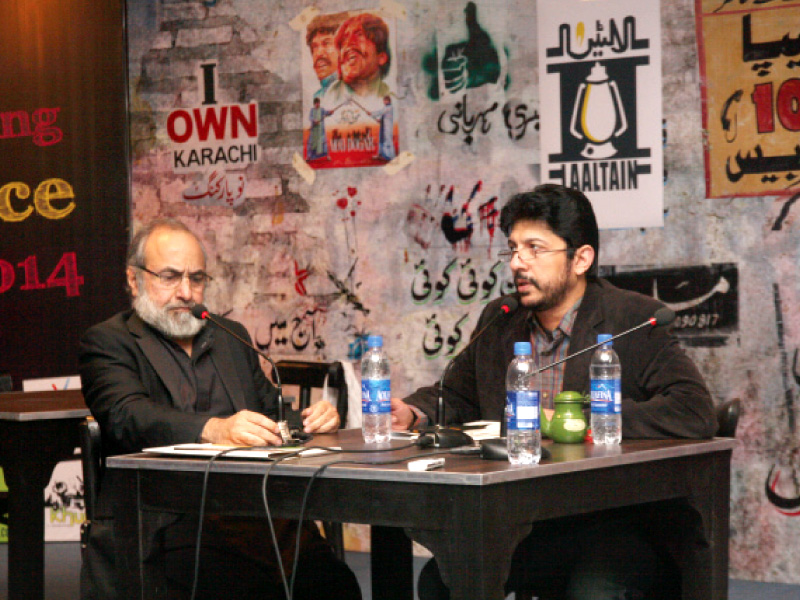
On the second day of the Khudi Festival of Ideas, organised by Khudi Pakistan at Karachi University, and educationist Asif Iftikhar revisited the traditional concepts of religion in society in a session titled 'The Changing Role of the Mosque'.
Before a young audience, Iftikhar, acting as the moderator, set the ball rolling by asking Zaheer about sectarianism. "The rulers lost their control over the clergy, and the clerics thus occupied the mosques, turning them in the direction they wanted," replied Zaheer. "Sectarianism and violence in the name of religion are the outcome of the state's negligence towards mosques."
He explained that the majority of the people, including the leaders of the state, have little understanding and knowledge of religion. In the absence of this knowledge, they rely blindly on clerics.
"It is the duty of the common man to denounce sectarianism," he added. "But because he does not know better, he does not discourage it."
Praising the culture of debate, Zaheer welcomed arguments in the realm of social discourse. "Every person should have their own understanding of issues," he asserted. "Engaging people in debate will open the doors for understanding and prevent the brainwashing that is being practiced in religion and politics nowadays."
He suggested that the prevalent tendency of pedagogy in schools and seminaries should be reexamined and their syllabi synchronised to allow the better consideration of religion and society.
Published in The Express Tribune, December 7th, 2014.
COMMENTS (2)
Comments are moderated and generally will be posted if they are on-topic and not abusive.
For more information, please see our Comments FAQ

















Both Khalid Zaheer and Asif Iftikhar belong to the Ghamidi school. As usual, instead of having any meaningful academic discussion they took the opportunity to rant on and on their personal views and grudges. Despite their insistence, most masjids are not seats of sectarian fanaticism. The problem is that masjids have become empty and defunct. What is needed is an effort to restore the Masjid as a spiritual and educational center of the community and not just a place of worship. And, yes this should and would eliminate violence, sectarian or otherwise. Traditional ulama and awliya must lead the effort to make masjids centers of learning and reflection.